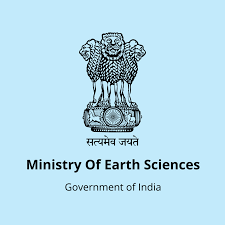India to Set Up Real-Time DBNet Weather Stations in Delhi & Chennai
DBNet (Direct Broadcast Network) is a global operational framework that enables the real-time acquisition of data from Low Earth Orbit (LEO) satellites.

- Country:
- India
In a major step towards advancing weather forecasting and climate monitoring, the National Centre for Medium Range Weather Forecasting (NCMRWF), under the Ministry of Earth Sciences (MoES), signed a Memorandum of Understanding (MoU) with New Space India Limited (NSIL), the commercial arm of the Department of Space (DoS). The signing ceremony took place today at Prithvi Bhavan, New Delhi.
The agreement paves the way for the establishment of two Direct Broadcast Network (DBNet) stations — one in Delhi/NCR and another in Chennai — under the MoES’s flagship Mission Mausam project.
What is DBNet and Why It Matters
DBNet (Direct Broadcast Network) is a global operational framework that enables the real-time acquisition of data from Low Earth Orbit (LEO) satellites. Unlike traditional systems that rely on centralized ground stations and delayed transmissions, DBNet captures satellite signals directly during overhead passes, processes them within minutes, and makes the data immediately available for Numerical Weather Prediction (NWP) models.
This technological leap ensures near real-time satellite data availability, significantly enhancing the accuracy, reliability, and timeliness of forecasts for weather events, including cyclones, monsoons, floods, and extreme climate conditions.
Capabilities of the New Stations
The DBNet stations in Delhi and Chennai will be equipped to:
-
Receive data from both Indian and international Earth Observation System (EOS) satellites such as Oceansat, NOAA, and MetOp.
-
Support scalability, allowing seamless integration with upcoming next-generation EOS satellites.
-
Process satellite data within five minutes of acquisition, ensuring rapid assimilation into NCMRWF’s NWP models.
Key Benefits for India and Beyond
The initiative is expected to deliver a range of benefits, both national and global:
-
Timely Weather Forecasts: Near real-time data availability will power short- to medium-range forecasts critical for agriculture, aviation, maritime operations, and disaster preparedness.
-
Reduced Data Latency: Direct reception removes dependence on delayed transmissions from central ground stations, cutting down lag time.
-
Disaster Risk Reduction: Faster forecasts mean more effective early warning systems for cyclones, heavy rainfall, and extreme heat events.
-
Global Contribution: As per World Meteorological Organization (WMO) policy, India will share processed DBNet datasets via the WMO Information System 2.0 (WIS 2.0) platform, ensuring international availability of EOS satellite data within 30 minutes. This enhances global DBNet coverage and cements India’s role as a responsible contributor to worldwide climate resilience.
Strengthening Mission Mausam and India’s Global Role
The two DBNet stations are part of Mission Mausam, a long-term initiative by the MoES to build advanced forecasting systems, enhance regional cooperation, and contribute to international weather and climate research. By aligning with WMO standards, the initiative ensures that India not only benefits domestically but also strengthens the global early-warning infrastructure.
India’s Commitment to Climate Leadership
Commenting on the development, senior officials emphasized that this collaboration reflects India’s commitment to advancing science-driven disaster risk reduction. It will also help in fulfilling global climate responsibilities under the Paris Agreement and other international frameworks.
By integrating DBNet technology into its forecasting chain, India is positioning itself as a key global partner in weather prediction, contributing to both regional stability and global sustainability goals.










